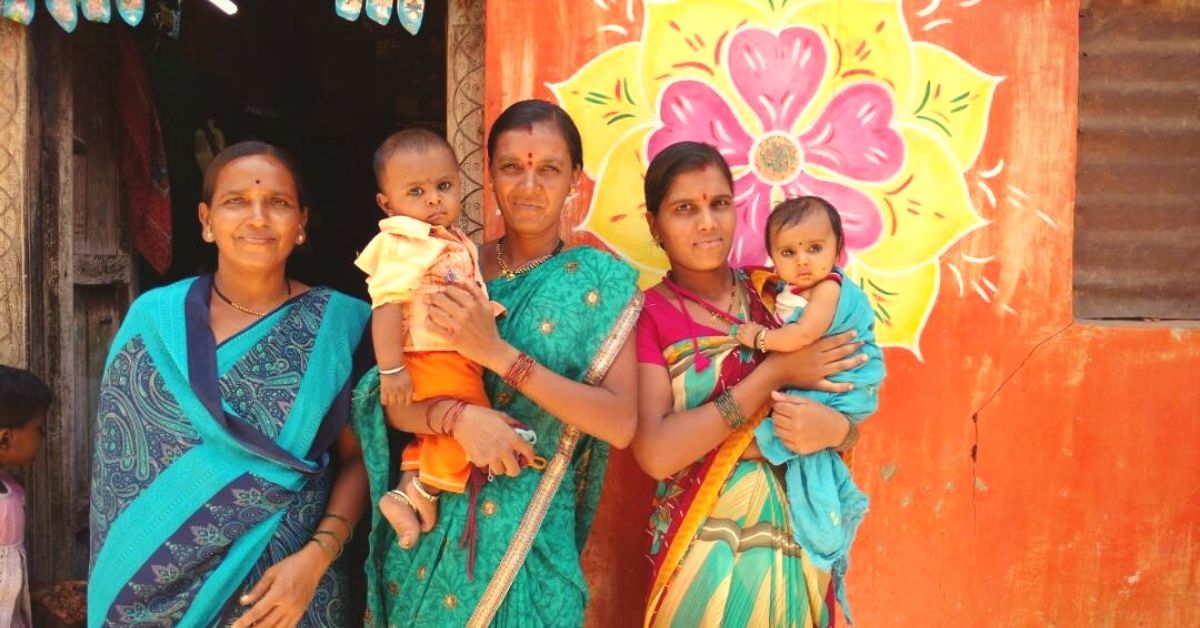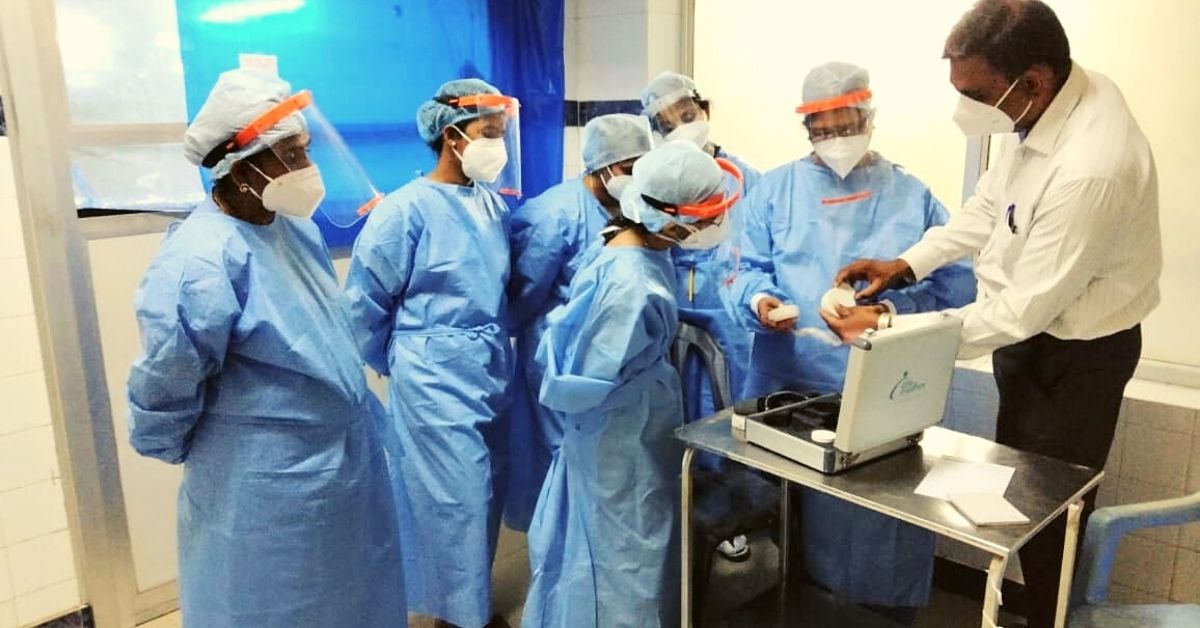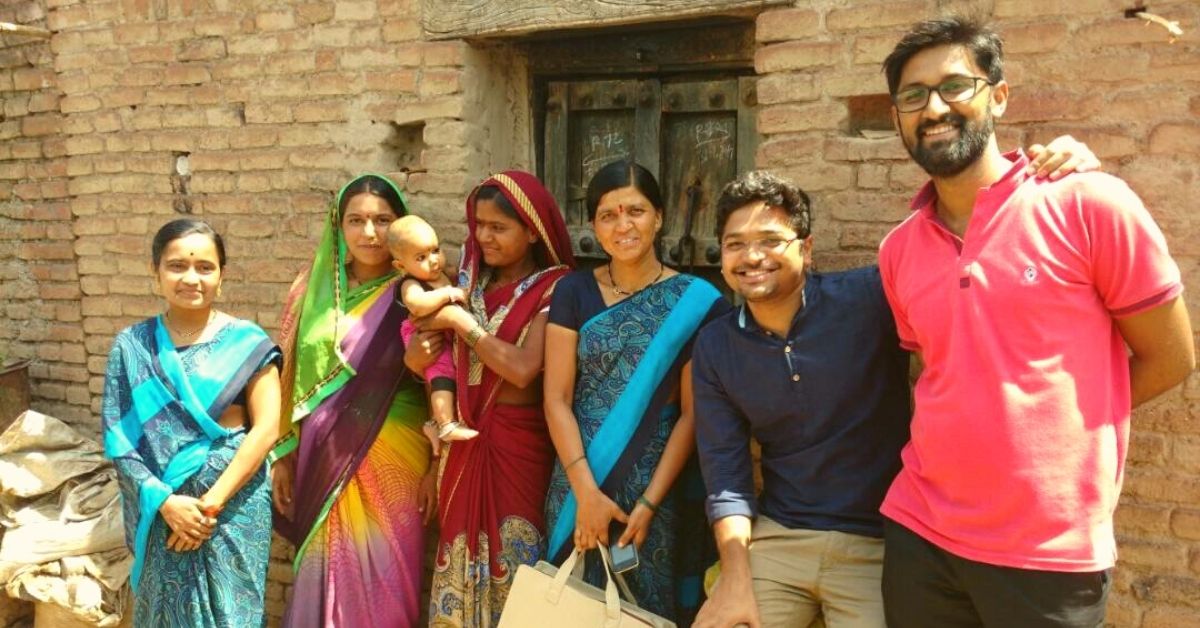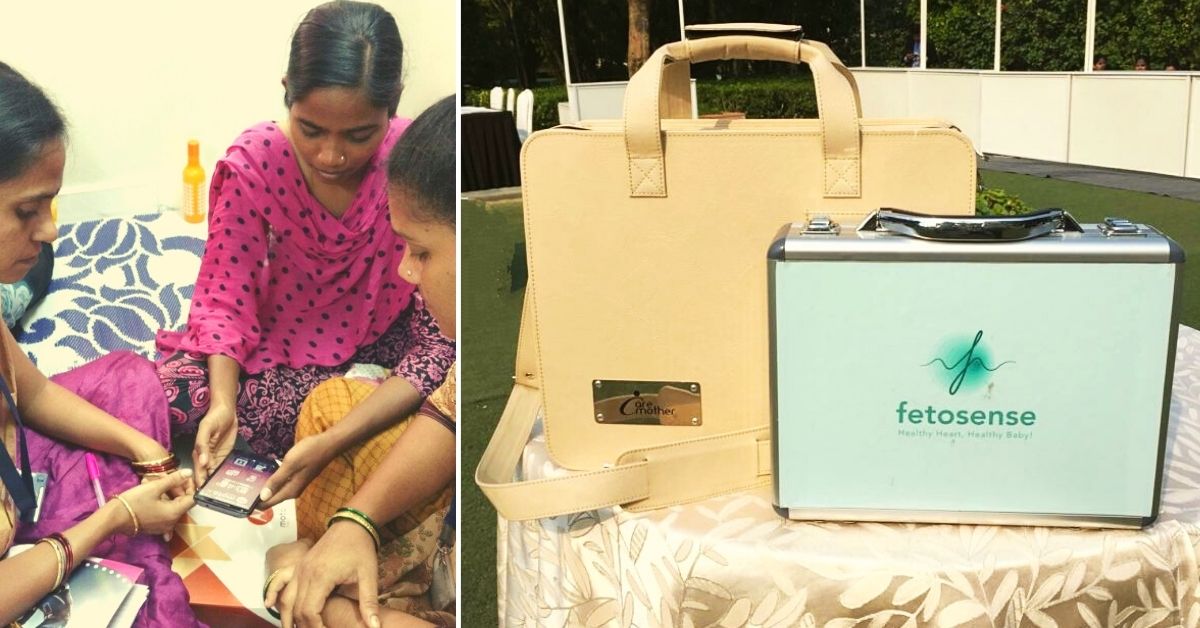This article has been published in partnership with Marico Innovation Foundation.
For 31-year-old Ajitha Patki Muglikar, experiencing pregnancy was one of her life’s most extraordinary experiences. It was, after all, her first baby and everything had to be perfect.
But with the joys of experiencing motherhood, she also nestled bouts of anxiety and fear.
“You are happy but also extremely worried about the well-being of your child throughout the pregnancy. That is why I was terrified when my gynaecologist suspected a fetal heart block during a check-up. Instantly, she conducted a non-stress test (NST) test to confirm and luckily, my baby was fine. To avoid similar panic situations, she recommended using a home-based mobile fetal monitoring device called BabyBeat. With its help, I could regularly monitor my baby’s heart rate and send real-time reports to the doctor. As the lockdown made stepping out risky, this device also helped my gynaecologist remotely monitor my progress and guide me through the process,” says Ajitha, who recently delivered a healthy baby.
Earlier, in similar circumstances, a mother might have to visit the clinic or hospital every once in a while to monitor the fetal heart rate. But BabyBeat, a home-based version of an innovative fetal monitoring device called Fetosense, makes it easy and hassle-free.
Invented by two tech-entrepreneurs, Shantanu Pathak and Aditya Kulkarni, Fetosense is among several pregnancy care solutions that their startup, CareNx, provides.
“We all know about the difficulties women have to face during pregnancy. But how many of us know how difficult that really is? Our pregnancy-care startup aims to recognise those difficulties and provide the best solutions possible,” says Shantanu. Together with Aditya, he launched the startup and their brand, CareMother, in 2015, to provide digital and accessible pregnancy care in urban and rural areas.
Student-turned-entrepreneurs

Born and raised in Vidarbha, Maharashtra, which has an abysmal rate of infant and neonatal mortality, Shantanu was always motivated to create social impact at the grassroots level.
And his efforts started right when he was an engineering student at Mumbai University. Along with a few friends, Shantanu launched an organisation called Science for Society (S4S) to find tech-based solutions for grassroots problems. It was then that he discovered his inclination towards working in the health-tech sector.
Then in 2014, an unfortunate incident with his friend’s sister opened his eyes to the gaping problem of pregnancy care, not just in rural areas but in cities as well.
“She was in a remote village when she suddenly went into labour and had to travel almost 300 kilometres to reach Hyderabad to receive medical help. The entire episode, be it the journey or what ensued after she reached the hospital, was extremely stressful. If not for the medical intervention she received in time, she might have had a miscarriage or even lost her life,” he says.
With this incident etched in his memory, Shantanu joined Aditya and designed the innovative, portable fetal heart monitoring device, Fetosense.
A portable life-saver

Essentially, the founders’ goal through CareMother is to provide a mobile pregnancy care platform that can be accessed at any time from anywhere, especially in the case of high-risk pregnancies.
“A regular fetal monitoring, especially in the last trimester of pregnancy, is extremely crucial. But conventional devices used by hospitals employ dated technology and are not portable. They require the expertise of a doctor or nurse for operation. Moreover, these devices are expensive, making it difficult to access, especially in rural areas,” explains Shantanu.
In addition to being portable, this wireless smartphone-based cardiotocography (CTG) device records fetal heartbeat and the pregnant women’s uterine contractions. It also sends real-time alerts to the presiding health practitioner in case of any abnormal results. This allows for efficient remote monitoring even in the most rural locations.

“Unlike its predecessors which conduct NST to monitor the baby’s heartbeat, movement and contractions, this device does not necessarily require electric supply or an expert practitioner to be operated. The AI-powered technology allows it to make digital records and shares them with family and experts through email, WhatsApp, etc. It also auto-interprets to predict any anomalies and sends appropriate alerts to selected contacts. And it does all of this at just 70% of the price of conventional CTG devices, which usually cost as high as Rs 2.5 lakh or more,” says Shantanu.
Talking about the benefits of the device, a Pune-based gynaecologist, Dr Mugdha Joshi says, “This is very useful in case of high-risk pregnancies, especially during any emergency. For instance, I have had a patient call me up at midnight, saying they cannot feel the baby move. In such a situation, the usual protocol is to rush them to the clinic or hospital for an NST. This device allows for an instant test from the comfort of their homes. We then make necessary arrangements on the go, based on real-time results. That is why Fetosense, and its smaller version BabyBeat, has a life-saving potential.”
Enabling quick medical aid across geographies

With skilled healthcare professionals, regular checkups, and portable devices, cases of high-risk pregnancies could be successfully managed and reduced even in rural areas, observes Shantanu. But the problem lies in the accessibility.
“Out of the 30 million pregnancies in India every year, almost 20 million women living in rural areas or low resource communities don’t have access to regular monitoring through tests like NST. This increases the chances of complications during labour, contributing to low birth rate and maternal mortality,” he says.
Shantanu hopes that through their rural outreach efforts, with the help of government-run health centres, private clinics and a network of gynaecologists, CareMother can successfully close the gap.
“In the last one year, we have already facilitated NST tests of over 10,000 expecting mothers using Fetosense. Our intervention has contributed to early detection and reduction of high-risk pregnancies, thus tackling issues of low birth rate and preterm birth,” he adds.
In the last few years, CareMother’s efforts to enable quick medical assistance across geographies through various innovations have helped over 60,000 women across 15 states.
Scaling to success

At a molecular level, CareMother’s primary goal is to uplift and improve women’s health by creating equal opportunity and access to quality medical care. They have been doing this for the past six years by developing partnerships with 20 NGOs and several government agencies.
However, Shantanu admits that it is only through scale and a holistic approach that they can truly make a difference.
This idea inspired both the founders to participate in the Scale-Up program initiated by Marico Innovation Foundation, in 2020. As part of the program, they are being mentored to accelerate their growth in the coming years.
“Our association with Marico Innovation Foundation has helped us expand our vision. With their help, Fetosense is now being used in more than 150 private clinics and health facilities, by over 250 gynaecologists. We aim to reach out to government health facilities in Nagaland, Andhra Pradesh, Karnataka and Maharashtra and expand CareMother’s technology in Nigeria and Bangladesh. Every innovation that we create under CareMother is now a step towards ensuring a healthier generation,” concludes Shantanu.
Do you know of an innovative organisation (for-profit/not-for-profit) that is looking to scale? Join Marico Innovation Foundation’s efforts to nurture Indian innovations as they help them climb the ladder towards its large-scale implementation.
Through its efforts, the foundation has helped scale over 30 innovative startups, empowering them to achieve a 10-fold growth in revenues, some of whom now have annual run rates of Rs 100 crore. You can send in your recommendations to mif@marico.com.
No comments:
Post a Comment